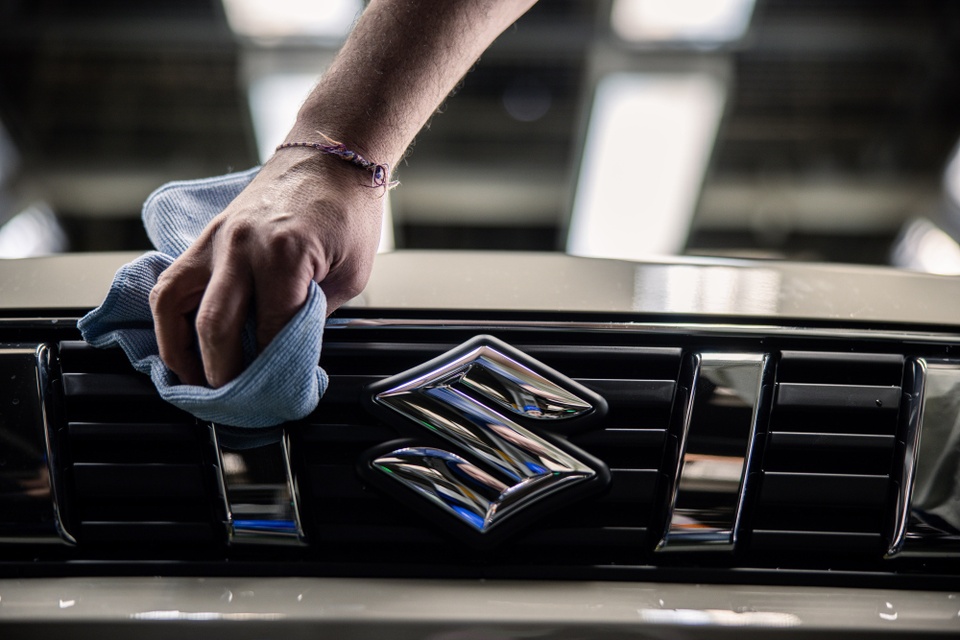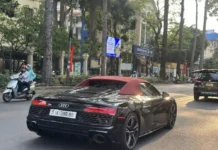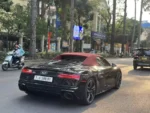
|
|
Suzuki, the Japanese automaker, is the latest to announce the closure of its Thai factory. Photo: Bloomberg |
Bangkok Post reported that Suzuki will soon halt its automobile and truck production in Thailand to focus on electric and hybrid vehicles at an alternative location. Specifically, Suzuki stated that it will maintain its business operations in Thailand by importing vehicles, including electric and hybrid models, from other factories in Southeast Asia, as well as Japan and India.
In a statement, Suzuki mentioned that it has been considering optimizing its production sites globally to promote carbon neutrality and electrification. As a result, the company will shut down its Thai factory by the end of 2025.
Currently, Suzuki distributes the Swift and Ciaz models in Vietnam through complete knock-down (CKD) imports from Thailand. It remains unclear what will happen to these models once the Suzuki factory in Thailand ceases operations, but both the Swift and Ciaz are facing challenges in the Vietnamese automobile market at present.
Specifically, the Suzuki Swift is only available in the GLX variant, priced at 560 million VND ($23,600), and sold 187 units in the first four months of this year. Meanwhile, the Suzuki Ciaz is priced at 535 million VND ($22,600) and sold only 5 units during the same period, making it one of the slowest-selling models in the Vietnamese automobile market.
|
|
|
Suzuki Ciaz is one of the two models currently imported by Vietnam Suzuki from Thailand. Photo: Vinh Phuc |
The 12-year-old factory in Rayong province, operated by Suzuki Motor Thailand, has an annual capacity of 60,000 vehicles and employs 800 people.
Suzuki’s move comes amid intensifying competition faced by Japanese automakers from Chinese rivals in the Thai market. Japanese automakers are reportedly under pressure to produce more electric and hybrid vehicles.
According to the Bangkok Post, Suzuki aims to have six electric vehicle models in its lineup by around 2030-2031. The company plans to launch its first electric vehicle in India next year, before exporting it to Japan and Europe.
Data from the Federation of Thai Industries (FTI) reveals that despite around 1,600-1,700 factory closures at the beginning of the year due to economic recession, merger plans, or rising operating costs, this number is expected to increase further in the coming months.
Prior to Suzuki, Subaru Corporation also announced plans to gradually reduce and eventually cease the assembly of Subaru cars in Thailand. From 2025 onwards, the markets consuming Subaru cars assembled in Thailand, including Thailand, Vietnam, Malaysia, and Cambodia, will switch to a business model of importing complete built-up (CBU) units from Japan.
|
|
|
Thailand’s automotive industry is facing challenges. Photo: Bangkok International Motor Show |
Mr. Kriengkrai Thiennukul, Chairman of FTI, stated that the Thai automotive industry is struggling due to stagnant domestic sales and declining exports compared to other countries in the region. “We have lost the title of ‘Detroit of Asia’ to Malaysia,” he acknowledged.
As of April, Thailand temporarily maintained its position as the largest automobile producer in the region, with 518,790 vehicles manufactured, according to data from the ASEAN Automotive Federation (AAF). Indonesia ranked second with a production volume of 367,802 vehicles in the first four months, while Malaysia completed the production of 267,326 vehicles during the same period.
However, Thailand has lost its position as the second-largest automobile market in the region to Malaysia. Malaysia’s total automobile market sales in the first four months reached 260,236 units, approximately 50,000 units higher than Thailand’s sales of 210,138 units during the same period.
Recommended Reads for Your Drive
The Auto channel brings you a selection of captivating books with diverse themes. During those relaxing moments in your car, a good book can be a wonderful companion.































![[Quick Review] Hyundai IONIQ 5 – A Vehicle from the Future](https://vnauto.net/wp-content/uploads/2023/10/xehay-hyundaiioniq5-18052022-2-150x150.jpg)














